Antonio Carta
Online Continual Learning for Time Series: a Natural Score-driven Approach
Jan 19, 2026Abstract:Online continual learning (OCL) methods adapt to changing environments without forgetting past knowledge. Similarly, online time series forecasting (OTSF) is a real-world problem where data evolve in time and success depends on both rapid adaptation and long-term memory. Indeed, time-varying and regime-switching forecasting models have been extensively studied, offering a strong justification for the use of OCL in these settings. Building on recent work that applies OCL to OTSF, this paper aims to strengthen the theoretical and practical connections between time series methods and OCL. First, we reframe neural network optimization as a parameter filtering problem, showing that natural gradient descent is a score-driven method and proving its information-theoretic optimality. Then, we show that using a Student's t likelihood in addition to natural gradient induces a bounded update, which improves robustness to outliers. Finally, we introduce Natural Score-driven Replay (NatSR), which combines our robust optimizer with a replay buffer and a dynamic scale heuristic that improves fast adaptation at regime drifts. Empirical results demonstrate that NatSR achieves stronger forecasting performance than more complex state-of-the-art methods.
Continual Learning Should Move Beyond Incremental Classification
Feb 17, 2025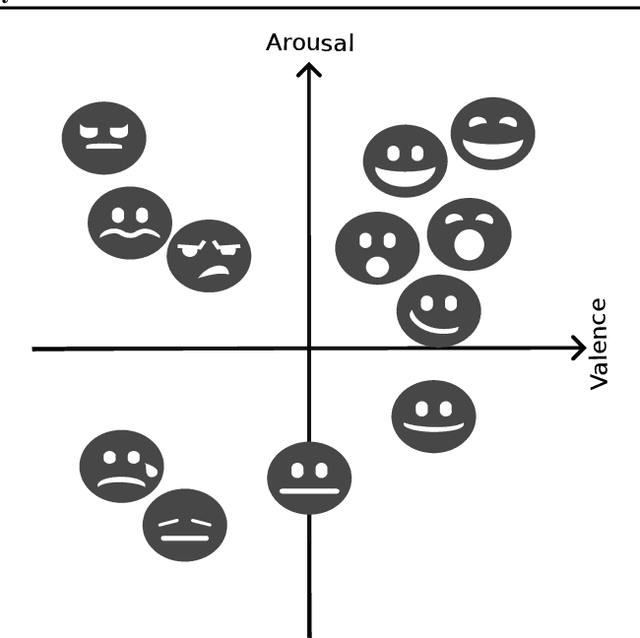
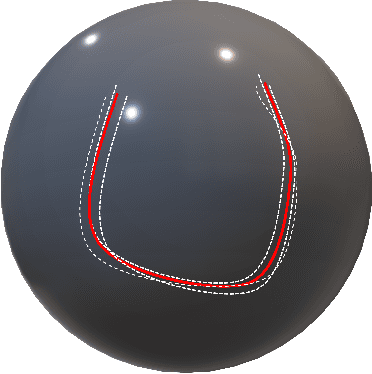
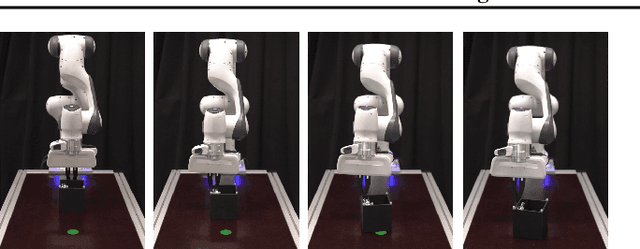
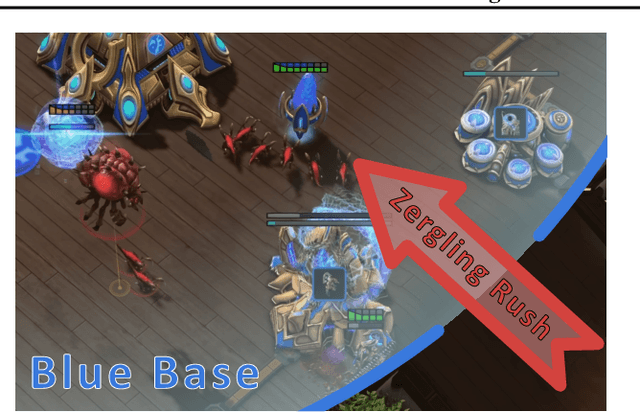
Abstract:Continual learning (CL) is the sub-field of machine learning concerned with accumulating knowledge in dynamic environments. So far, CL research has mainly focused on incremental classification tasks, where models learn to classify new categories while retaining knowledge of previously learned ones. Here, we argue that maintaining such a focus limits both theoretical development and practical applicability of CL methods. Through a detailed analysis of concrete examples - including multi-target classification, robotics with constrained output spaces, learning in continuous task domains, and higher-level concept memorization - we demonstrate how current CL approaches often fail when applied beyond standard classification. We identify three fundamental challenges: (C1) the nature of continuity in learning problems, (C2) the choice of appropriate spaces and metrics for measuring similarity, and (C3) the role of learning objectives beyond classification. For each challenge, we provide specific recommendations to help move the field forward, including formalizing temporal dynamics through distribution processes, developing principled approaches for continuous task spaces, and incorporating density estimation and generative objectives. In so doing, this position paper aims to broaden the scope of CL research while strengthening its theoretical foundations, making it more applicable to real-world problems.
Replay-free Online Continual Learning with Self-Supervised MultiPatches
Feb 13, 2025
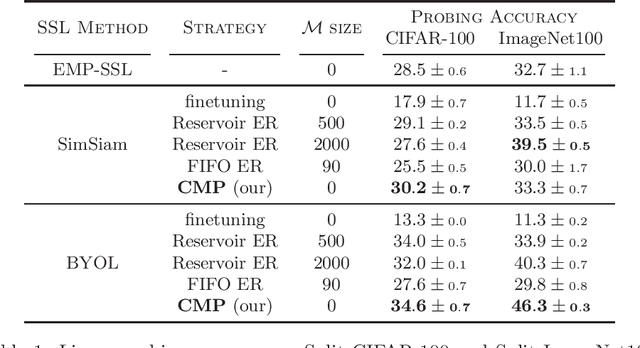
Abstract:Online Continual Learning (OCL) methods train a model on a non-stationary data stream where only a few examples are available at a time, often leveraging replay strategies. However, usage of replay is sometimes forbidden, especially in applications with strict privacy regulations. Therefore, we propose Continual MultiPatches (CMP), an effective plug-in for existing OCL self-supervised learning strategies that avoids the use of replay samples. CMP generates multiple patches from a single example and projects them into a shared feature space, where patches coming from the same example are pushed together without collapsing into a single point. CMP surpasses replay and other SSL-based strategies on OCL streams, challenging the role of replay as a go-to solution for self-supervised OCL.
Online Curvature-Aware Replay: Leveraging $\mathbf{2^{nd}}$ Order Information for Online Continual Learning
Feb 03, 2025



Abstract:Online Continual Learning (OCL) models continuously adapt to nonstationary data streams, usually without task information. These settings are complex and many traditional CL methods fail, while online methods (mainly replay-based) suffer from instabilities after the task shift. To address this issue, we formalize replay-based OCL as a second-order online joint optimization with explicit KL-divergence constraints on replay data. We propose Online Curvature-Aware Replay (OCAR) to solve the problem: a method that leverages second-order information of the loss using a K-FAC approximation of the Fisher Information Matrix (FIM) to precondition the gradient. The FIM acts as a stabilizer to prevent forgetting while also accelerating the optimization in non-interfering directions. We show how to adapt the estimation of the FIM to a continual setting stabilizing second-order optimization for non-iid data, uncovering the role of the Tikhonov regularization in the stability-plasticity tradeoff. Empirical results show that OCAR outperforms state-of-the-art methods in continual metrics achieving higher average accuracy throughout the training process in three different benchmarks.
GAS-Norm: Score-Driven Adaptive Normalization for Non-Stationary Time Series Forecasting in Deep Learning
Oct 04, 2024

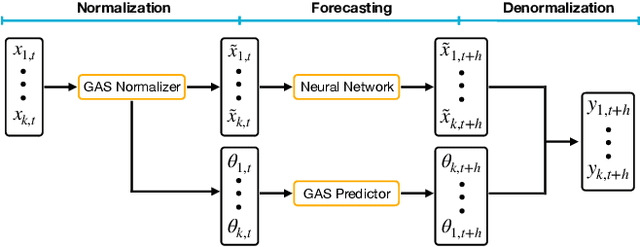
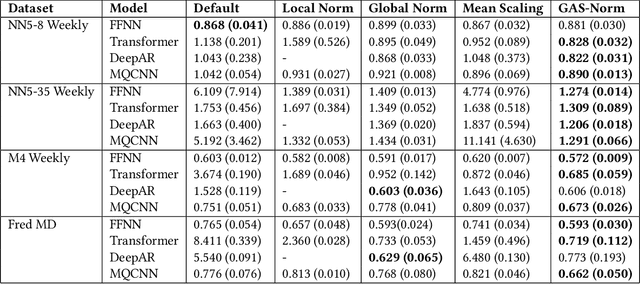
Abstract:Despite their popularity, deep neural networks (DNNs) applied to time series forecasting often fail to beat simpler statistical models. One of the main causes of this suboptimal performance is the data non-stationarity present in many processes. In particular, changes in the mean and variance of the input data can disrupt the predictive capability of a DNN. In this paper, we first show how DNN forecasting models fail in simple non-stationary settings. We then introduce GAS-Norm, a novel methodology for adaptive time series normalization and forecasting based on the combination of a Generalized Autoregressive Score (GAS) model and a Deep Neural Network. The GAS approach encompasses a score-driven family of models that estimate the mean and variance at each new observation, providing updated statistics to normalize the input data of the deep model. The output of the DNN is eventually denormalized using the statistics forecasted by the GAS model, resulting in a hybrid approach that leverages the strengths of both statistical modeling and deep learning. The adaptive normalization improves the performance of the model in non-stationary settings. The proposed approach is model-agnostic and can be applied to any DNN forecasting model. To empirically validate our proposal, we first compare GAS-Norm with other state-of-the-art normalization methods. We then combine it with state-of-the-art DNN forecasting models and test them on real-world datasets from the Monash open-access forecasting repository. Results show that deep forecasting models improve their performance in 21 out of 25 settings when combined with GAS-Norm compared to other normalization methods.
* Accepted at CIKM '24
A Comprehensive Empirical Evaluation on Online Continual Learning
Sep 01, 2023Abstract:Online continual learning aims to get closer to a live learning experience by learning directly on a stream of data with temporally shifting distribution and by storing a minimum amount of data from that stream. In this empirical evaluation, we evaluate various methods from the literature that tackle online continual learning. More specifically, we focus on the class-incremental setting in the context of image classification, where the learner must learn new classes incrementally from a stream of data. We compare these methods on the Split-CIFAR100 and Split-TinyImagenet benchmarks, and measure their average accuracy, forgetting, stability, and quality of the representations, to evaluate various aspects of the algorithm at the end but also during the whole training period. We find that most methods suffer from stability and underfitting issues. However, the learned representations are comparable to i.i.d. training under the same computational budget. No clear winner emerges from the results and basic experience replay, when properly tuned and implemented, is a very strong baseline. We release our modular and extensible codebase at https://github.com/AlbinSou/ocl_survey based on the avalanche framework to reproduce our results and encourage future research.
Improving Online Continual Learning Performance and Stability with Temporal Ensembles
Jul 03, 2023



Abstract:Neural networks are very effective when trained on large datasets for a large number of iterations. However, when they are trained on non-stationary streams of data and in an online fashion, their performance is reduced (1) by the online setup, which limits the availability of data, (2) due to catastrophic forgetting because of the non-stationary nature of the data. Furthermore, several recent works (Caccia et al., 2022; Lange et al., 2023) arXiv:2205.13452 showed that replay methods used in continual learning suffer from the stability gap, encountered when evaluating the model continually (rather than only on task boundaries). In this article, we study the effect of model ensembling as a way to improve performance and stability in online continual learning. We notice that naively ensembling models coming from a variety of training tasks increases the performance in online continual learning considerably. Starting from this observation, and drawing inspirations from semi-supervised learning ensembling methods, we use a lightweight temporal ensemble that computes the exponential moving average of the weights (EMA) at test time, and show that it can drastically increase the performance and stability when used in combination with several methods from the literature.
Projected Latent Distillation for Data-Agnostic Consolidation in Distributed Continual Learning
Mar 28, 2023



Abstract:Distributed learning on the edge often comprises self-centered devices (SCD) which learn local tasks independently and are unwilling to contribute to the performance of other SDCs. How do we achieve forward transfer at zero cost for the single SCDs? We formalize this problem as a Distributed Continual Learning scenario, where SCD adapt to local tasks and a CL model consolidates the knowledge from the resulting stream of models without looking at the SCD's private data. Unfortunately, current CL methods are not directly applicable to this scenario. We propose Data-Agnostic Consolidation (DAC), a novel double knowledge distillation method that consolidates the stream of SC models without using the original data. DAC performs distillation in the latent space via a novel Projected Latent Distillation loss. Experimental results show that DAC enables forward transfer between SCDs and reaches state-of-the-art accuracy on Split CIFAR100, CORe50 and Split TinyImageNet, both in reharsal-free and distributed CL scenarios. Somewhat surprisingly, even a single out-of-distribution image is sufficient as the only source of data during consolidation.
Avalanche: A PyTorch Library for Deep Continual Learning
Feb 02, 2023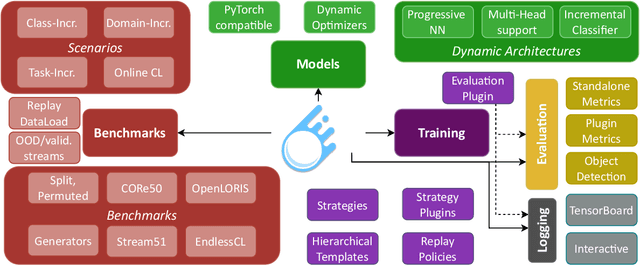
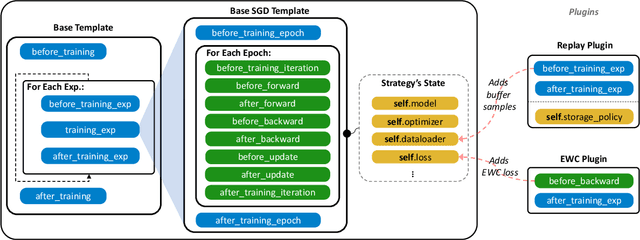
Abstract:Continual learning is the problem of learning from a nonstationary stream of data, a fundamental issue for sustainable and efficient training of deep neural networks over time. Unfortunately, deep learning libraries only provide primitives for offline training, assuming that model's architecture and data are fixed. Avalanche is an open source library maintained by the ContinualAI non-profit organization that extends PyTorch by providing first-class support for dynamic architectures, streams of datasets, and incremental training and evaluation methods. Avalanche provides a large set of predefined benchmarks and training algorithms and it is easy to extend and modular while supporting a wide range of continual learning scenarios. Documentation is available at \url{https://avalanche.continualai.org}.
Class-Incremental Learning with Repetition
Jan 26, 2023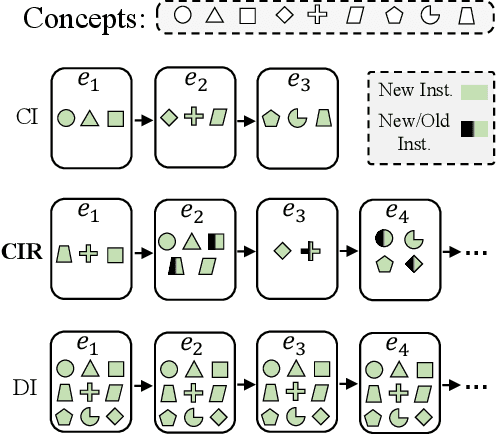

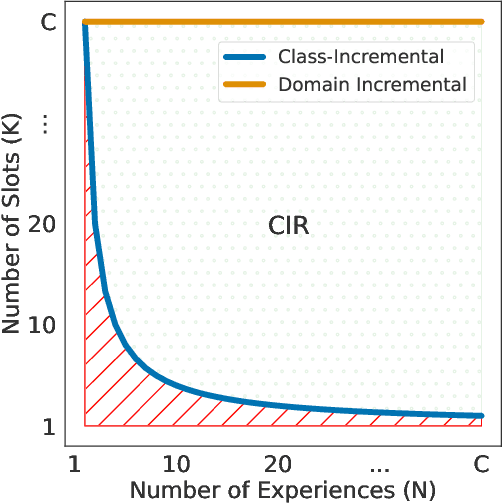
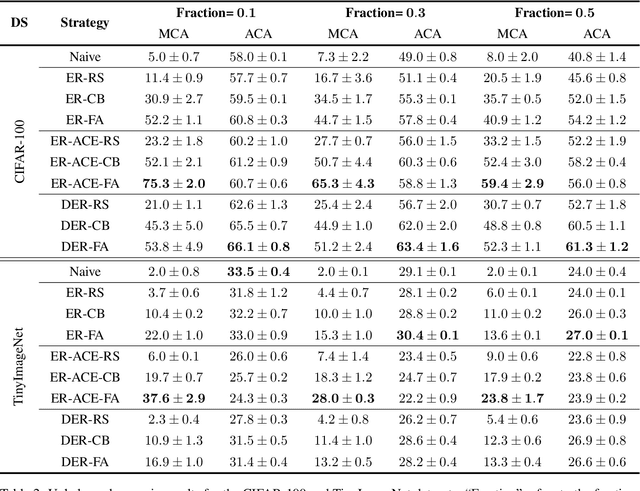
Abstract:Real-world data streams naturally include the repetition of previous concepts. From a Continual Learning (CL) perspective, repetition is a property of the environment and, unlike replay, cannot be controlled by the user. Nowadays, Class-Incremental scenarios represent the leading test-bed for assessing and comparing CL strategies. This family of scenarios is very easy to use, but it never allows revisiting previously seen classes, thus completely disregarding the role of repetition. We focus on the family of Class-Incremental with Repetition (CIR) scenarios, where repetition is embedded in the definition of the stream. We propose two stochastic scenario generators that produce a wide range of CIR scenarios starting from a single dataset and a few control parameters. We conduct the first comprehensive evaluation of repetition in CL by studying the behavior of existing CL strategies under different CIR scenarios. We then present a novel replay strategy that exploits repetition and counteracts the natural imbalance present in the stream. On both CIFAR100 and TinyImageNet, our strategy outperforms other replay approaches, which are not designed for environments with repetition.
 Add to Chrome
Add to Chrome Add to Firefox
Add to Firefox Add to Edge
Add to Edge